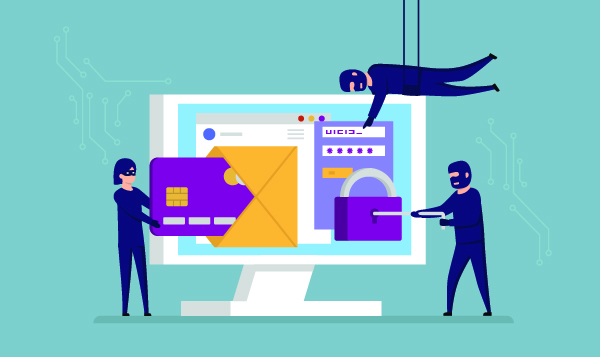In 1736, Ben Franklin famously advised Americans that an ounce of prevention is worth a pound of cure. While Franklin was actually referring to fire prevention, his advice rings true for myriad other issues including contemporary concerns such as identity theft.
While identity theft is not a new problem, the number of victims has recently exploded to nearly 1.4 million reports received by the Federal Trade Commission’s IdentityTheft.gov website in 2020 (Federal Trade Commission “New Data”). While it is commonly known that identity thieves make purchases in their victims’ names, they also open new credit card accounts, take out loans, and create accounts with vendors such as Venmo, PayPal, etc. (Federal Trade Commission).
Identity thieves sometimes use victims’ information to receive health services. This results in bills that the victims have to spend time and/or money to clear up as well as compromising victims’ health records. They also may commit crimes under the name of the victim which frequently results in an arrest warrant in the victim’s name.
Common indirect consequences for victims of identity theft include difficulty obtaining a loan or only qualifying for a higher interest rate on a loan, difficulty purchasing or renting a home, and problems at work including job loss or inability to qualify for a desired job as a result of complications related to the identity theft (Federal Trade Commission). While some victims are able to fully reclaim their identity in a few months, others continue to suffer financial consequences for years or even decades.
Not only must victims spend time and money trying to clear up the fallout from having their identity stolen, but there is also, unfortunately, a significant emotional cost. “Victims of identity theft will feel overwhelmed at times by the psychological pain of loss, helplessness, anger, isolation, betrayal, rage, and even embarrassment. This crime triggers deep fears regarding financial security, the safety of family members, and the ability to trust again” (Consumer Protection Division).
So how can you avoid becoming a victim? The following are some tips that can help you keep your identity safe:
- Shred expired credit cards and any documents with account information including account statements, receipts, and credit offers. If you do not own a shredder or have enough documents that a home shredder is impractical, most areas have local shredding services that will take care of your materials for a small fee.
- Keep your social security card stored in a safe place and do not carry it with you. Only provide your social security number to trusted institutions and only when necessary.
- In addition to keeping your social security number private, also avoid sharing your birthdate and any other personal information such as bank account or credit card numbers when possible.
- Collect your mail in a timely manner and put your mail on hold when you are out of town.
- Create complex passwords that thieves will not be able to guess and avoid using the same password for multiple sites.
- Avoid using public wi-fi when possible. If you do use public wi-fi, use a virtual private network (VPN) to protect yourself from anyone who might otherwise be able to monitor your online activity (“Identity Theft” USA.gov).
If, in spite of your best efforts, you do end up becoming a victim, report the identity theft to the Federal Trade Commission online at IdentityTheft.gov or by calling 877-438-4338. You may also want to contact your local police department (“Identity Theft” USA.gov).
Federal Trade Commission "What to Know About Identity Theft"

